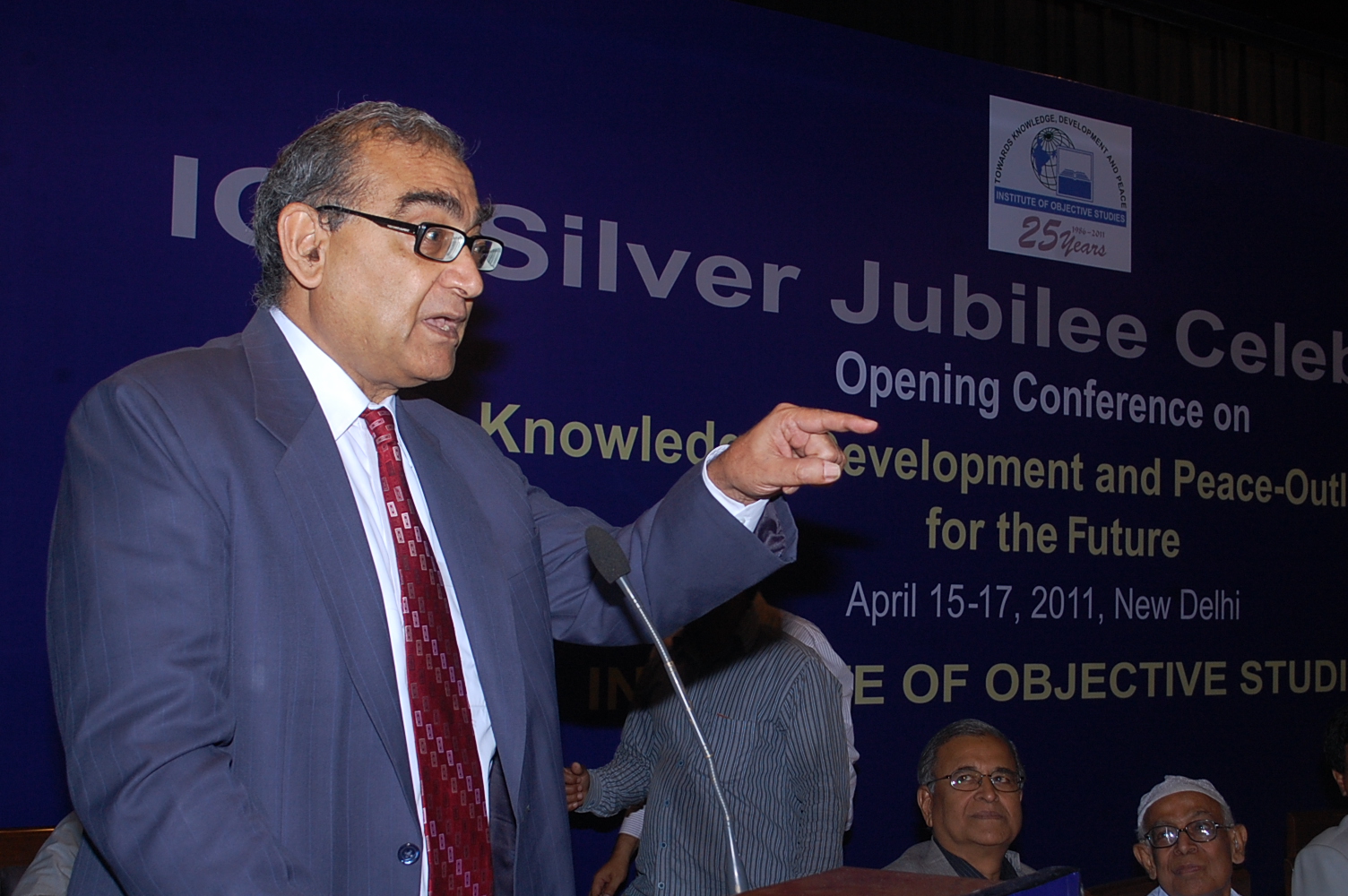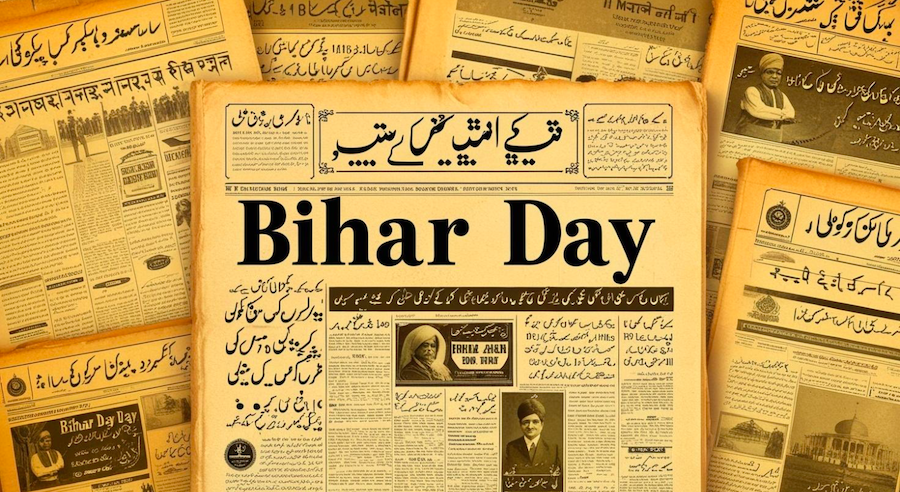Tarique Anwar, BeyondHeadlines
New Delhi: In exercise of the powers conferred by the sub-section (2) of section 5 of the Press Council Act, 1978 (37 of 1978), the central government yesterday notified the nomination of Justice Markandey Katju, retired judge of the Supreme Court of India, as the chairman of the Press Council of India.
Katju was born on September 20, 1946, in a Kashmiri Brahmin family. He topped the merit list of the Allahabad University’s LLB examination of 1968. Thereafter, he practiced law in the Allahabad High Court specializing in Labour Law, Taxation and Writ Petitions. He is keenly interested in academics and has a wide range of interests, including Sanskrit, Urdu, History, Philosophy, Science, Sociology etc., apart from his interest in Jurisprudence.
After practicising law in the Allahabad High Court, Justice Markandey Katju was appointed judge of the Allahabad High Court in 1991, as its acting Chief Justice in August 2004. He was also the chief justice of Madras High Court in November 2004. He became the Chief Justice of Delhi High Court in October in 2005. He was appointed as the judge of the Supreme Court in April 2006 and retired on September 19, 2011.
While serving as the chief justice of the Madras High Court, Justice Katju spoke about judges initiating “Contempt of Court” proceedings. His view was that the authority of judges rests on public confidence and not on the power of contempt.
Justice Katju’s judgments are considered bold, insightful and occasionally controversial. In January 2009, Hearing a petition filed by Archbishop Raphael Cheenath about violence against Christians in Orissa, Katju observed, “We can’t tolerate persecution of religious minorities. If your government cannot control such incidents, then quit office.” The bench directed the government to provide adequate security and compensation to the aggrieved parties.

In July 2009, Justice Katju apologised for commenting, during the hearing of a case, that students cannot insist on wearing beards as this would lead to the “Talibanisation” of India. The comment led to much controversy and Justice Katju and Justice Raveendran later withdrew the related order, stating: “During the hearing, certain observations were made by one of us. His intentions were not to offend anyone. However, if any one’s feeling has been hurt, he apologises and expresses regret in the matter.”
In Prafull Goradia vs Union of India, a bench of the Supreme Court comprising also of Justice Katju, dismissed petitioner’s claim that Hajj subsidies provided by the Government of India were unconstitutional. The bench observed that, “the object of Article 27 is to maintain secularism, and hence we must construe it from that angle.”
In November 2010, in a strong indictment of a Judge of the Allahabad High Court for passing orders on extraneous considerations, Justice Katju directed the chief justice of the high court to take action against the judge concerned, and some other judges facing complaints. Making a reference to Shakespeare, Katju famously noted that “something is rotten in the Allahabad High Court.” The observation was contested by the Allahabad High Court, but the Supreme Court refused to expunge the remark.
On March 8, 2011, Katju delivered a “landmark” judgement legalizing passive euthanasia or withdrawal of life-support systems for patients who are brain dead or in a permanent vegetative state and whom doctors have lost hope of reviving even with the most advanced medical aid. The detailed process of passive euthanasia includes strict guidelines that must be met, including a case by case review of medical condition by a team of court appointed doctors and prior approval of the high court.
The Judge further observed that the Section 309 of the Indian Penal Code, according to which attempt to suicide is a criminal offence, was archaic and needed review. He said, “A person attempts suicide in a depression, and hence he needs help rather than punishment. We, therefore, recommend to Parliament to consider the feasibility of deleting the Section 309 from the Indian Penal Code.” The judgement received widespread commendation as “brave”, well-researched and “path breaking.”
On May 13, 2011, a Supreme Court bench involving Justice Katju said that fake encounters are nothing but cold-blooded brutal murders, which should be treated as the rarest of rare cases and that police personnel responsible for it should be awarded death sentence.
The observation was made while rejecting bail to Mumbai policemen involved in the fake encounter at Nana-Nani Park at Versova. A similar observation was made while hearing the fake encounter case of an alleged gangster by the Rajasthan Police on October 23, 2006.
On June 17, 2011, Katju made a personal appeal to Prime Minister Manmohan Singh to release on “humanitarian grounds” Khalil Chishty, an elderly Pakistani virologist in Indian prison since 1992. Justice Katju expressed fear that if Chishty is not released forthwith, he may die in the jail by the time his appeal is decided by the Rajasthan High Court.
The move did not appear to go down well with the main opposition party, the Bharatiya Janata Party (BJP), which found as “odd” the appeal to free 80-year-old Chishty, a murder convict. “It is odd that an SC judge is writing to the prime minister for securing the release of a Pakistani prisoner, even in his individual capacity,” BJP spokesman Ravi Shankar Prasad said.
However, other than the BJP, his appeal found widespread support in India. Given the response, the prime minister instructed the home minister to examine the request of Justice Katju.
The background Katju (65) is noteworthy because of his family’s achievements in the fields of law and politics. His father late Justice S N Katju was a former judge of the Allahabad High Court and his grandfather Dr Kailash Nath Katju was one of India’s leading lawyers and participated in the country’s freedom movement. Dr K N Katju was the chief minister of Madhya Pradesh, the governor of West Bengal and Orissa as well as the union law, home and defence minister.
Justice Markandey Katju has written several books, which include publications such as ‘Law in the Scientific Era’, ‘Interpretation of Taxing Statutes’, ‘Mimansa Rules of Interpretation’, and ‘Domestic Enquiry’.









